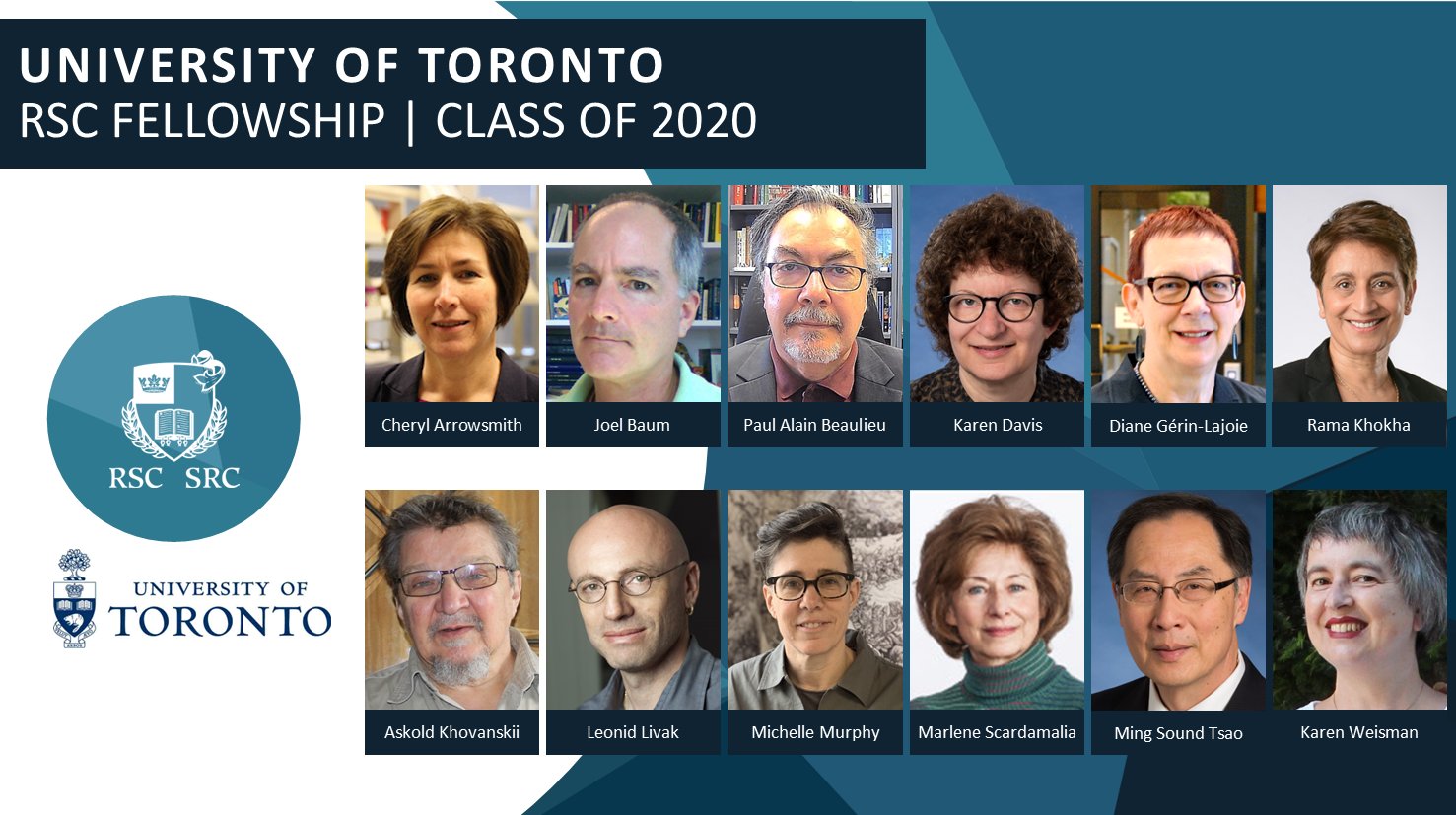Research
Adult Stem Cell Niches & Tumor Microenvironment
We are working to unravel the biological complexity of tissue homeostasis since its disintegration underlies cancer and disease. Control over structural scaffolds, stem & progenitor cell populations, and instructive signals is essential for healthy aging of tissues. We excel at developing cutting-edge systems including genetically engineered mouse models and primary human cell mutagenesis platforms. We are known for our discoveries in proteolytic regulation of cell signalling, adult stem cell dynamics, and new cancer driver genes that govern tumorigenesis. We are translating our findings to benefit cancer therapy, prevention and cure.
Follow Khokha Lab on Twitter!
News and New Publications
May 2025
Congratulations to Dapo who received the Canada Graduate Scholarships Award (CGS-D)!
to Dapo who received the Canada Graduate Scholarships Award (CGS-D)!
April 2025
Cong ratulations to Olivia, her poster won the first place!
ratulations to Olivia, her poster won the first place!
January 2023
Happy holidays and happy new year from the Khokha Lab ~
Welcome Abhijith! Enjoy your post-doctoral journey.
December 2022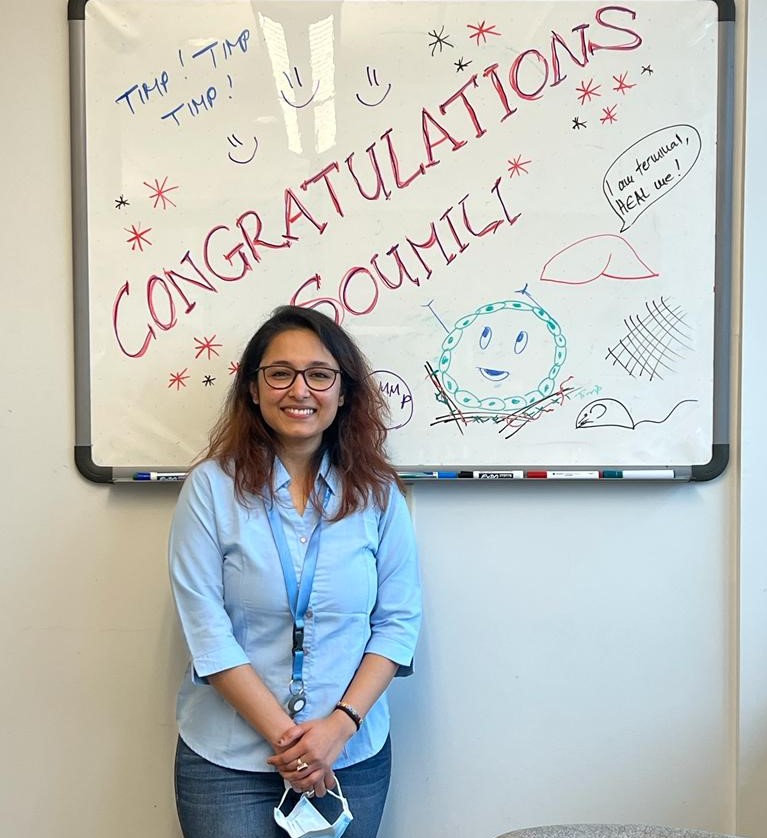
Congratulations Soumili on passing PhD qualifiers!
August 2022
Incredible job Foram on your PhD reclassification!
May 2022
Congrats Bowen on successfully reclassifying to a PhD!
April 2022

Welcome to our newest post-doc, Niklas!
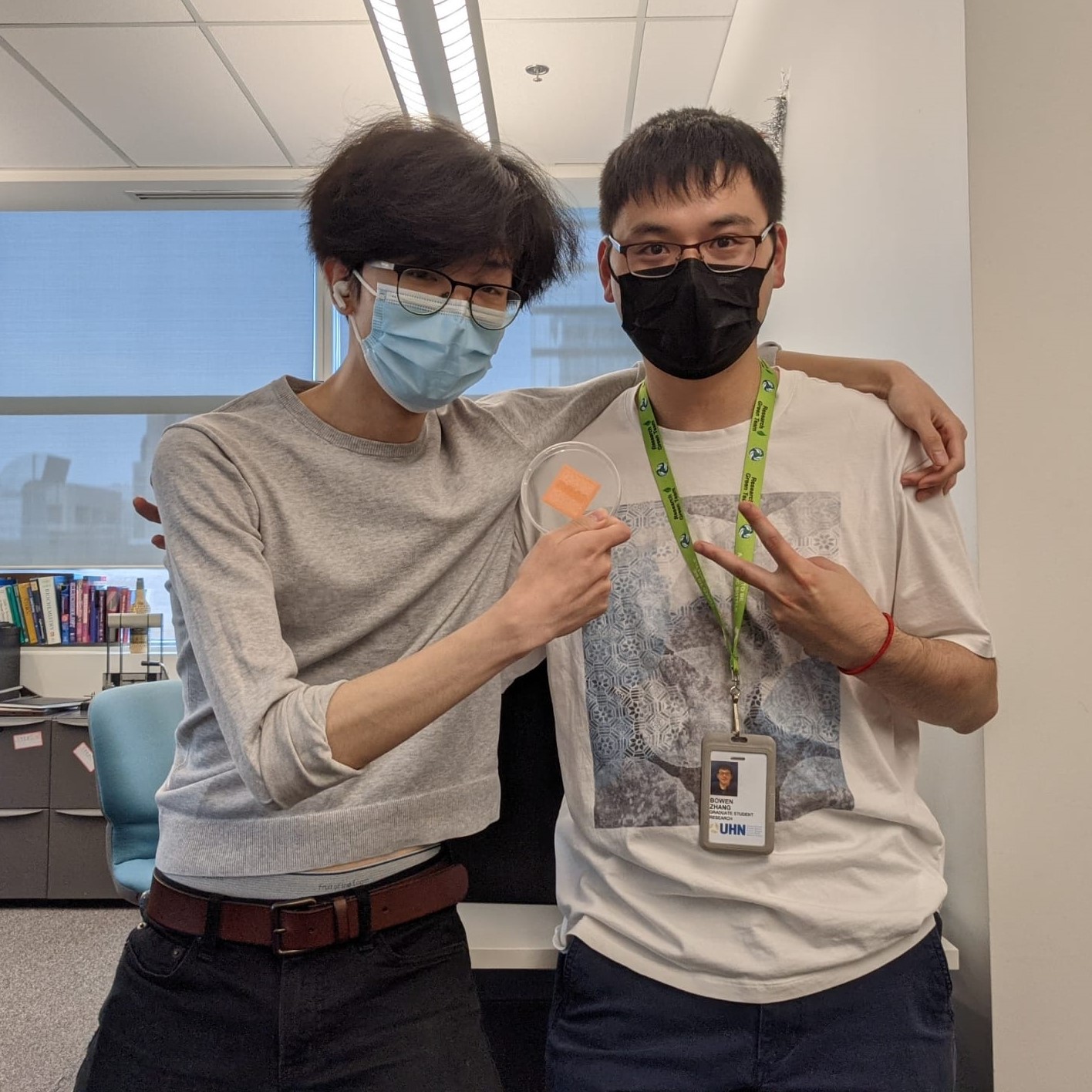
Bowen and Nathan 3D printed Khokha Lab's first item!
March 2022
 Welcome Shawn, enjoy your post-doctoral studies!
Welcome Shawn, enjoy your post-doctoral studies!
February 2022
Congratulations Soumili on winning Best Speaker Award at the 39th Winterschool on Proteinases and Their Inhibitors. This program encourages young scientists to present their exciting and intriguing results for discussion with leading experts.
Winterschool on Proteinases and Their Inhibitors. This program encourages young scientists to present their exciting and intriguing results for discussion with leading experts.
January 2022
Happy new year from the Khokha Lab!
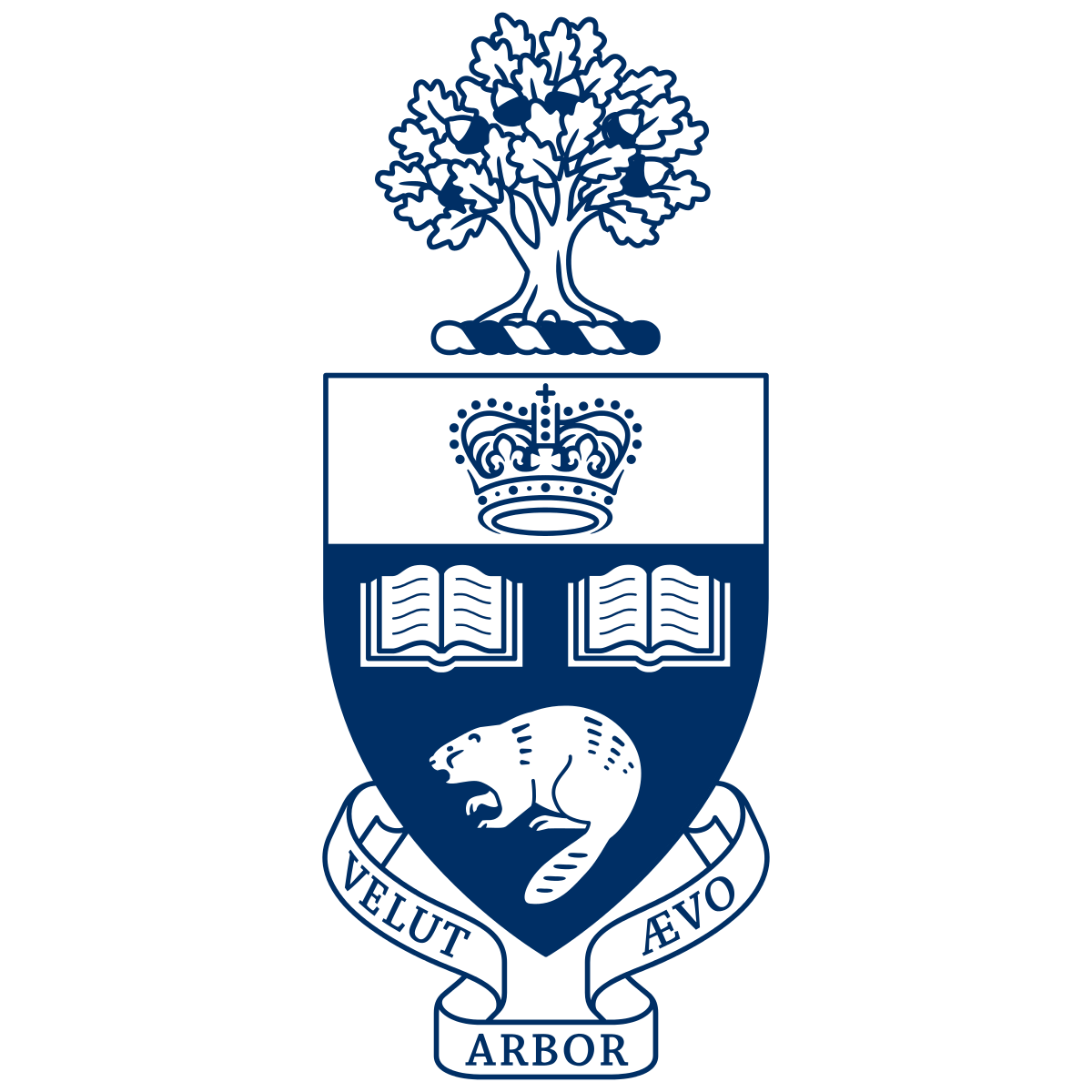 Congrats Emily for joining the Medical BioPhysics program at the University of Toronto. Enjoy your grad studies!
Congrats Emily for joining the Medical BioPhysics program at the University of Toronto. Enjoy your grad studies!
October 2021
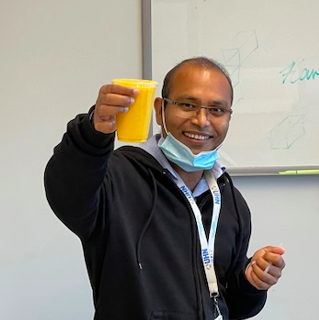 Congratulations Sanjay and Ashley for publishing in Blood Advances! (1) Access it here: Abnormal B-cell development in TIMP-deficient bone marrow
Congratulations Sanjay and Ashley for publishing in Blood Advances! (1) Access it here: Abnormal B-cell development in TIMP-deficient bone marrow
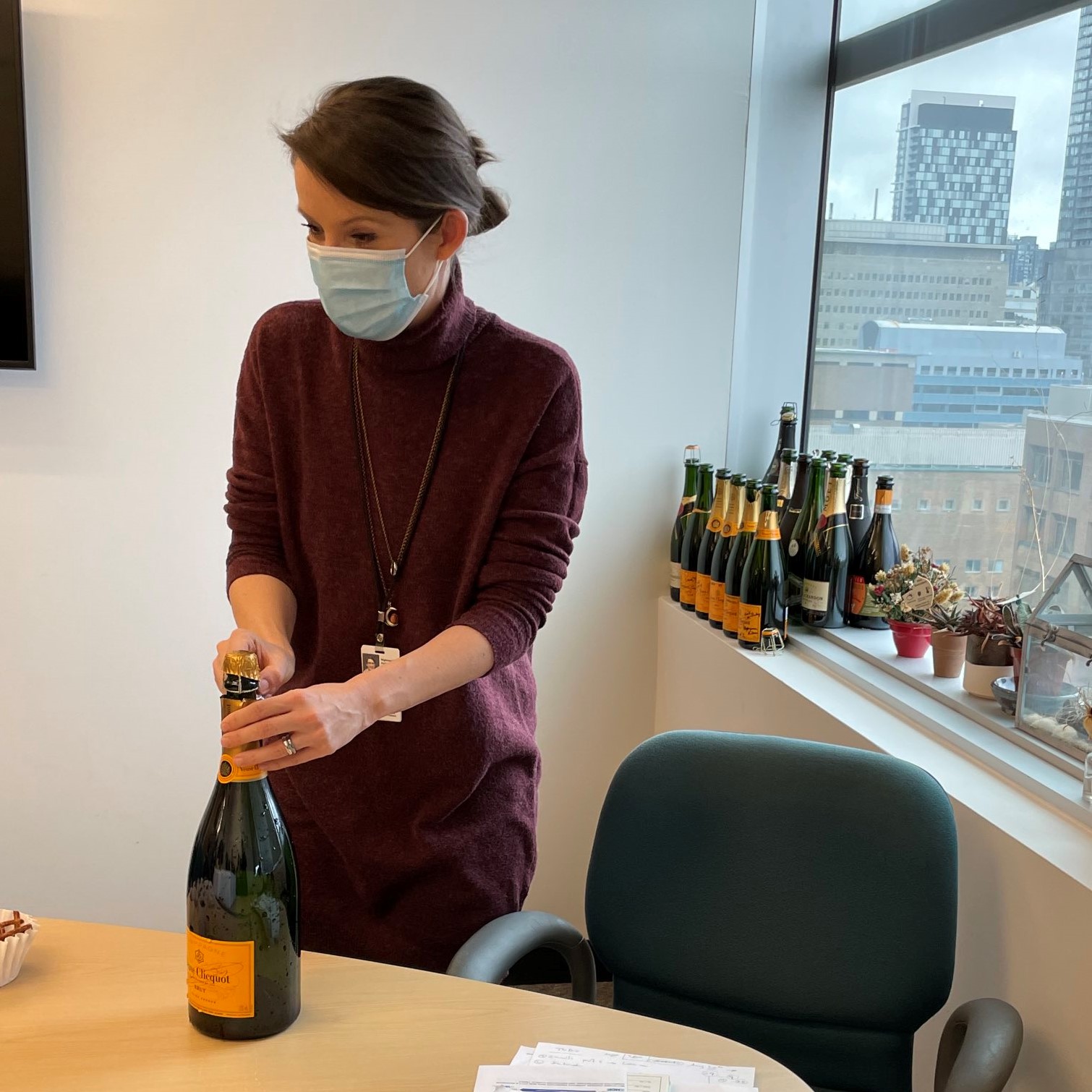 Congratulations Barbara for publishing in Cell! Read the study here: Spatially confined sub-tumor microenvironments in pancreatic cancer
Congratulations Barbara for publishing in Cell! Read the study here: Spatially confined sub-tumor microenvironments in pancreatic cancer
May 2021
Hyeyeon's cover image got selected for the May 2021 issue of Nature Metabolism. Nice artwork created with single cell images obtained using Amnis!
 Congrats Mathepan, Hyeyeon, Curtis and the mammary team for publishing in Nature Metabolism! Access the paper here: Mammary epithelial cells have lineage-rooted metabolic identities
Congrats Mathepan, Hyeyeon, Curtis and the mammary team for publishing in Nature Metabolism! Access the paper here: Mammary epithelial cells have lineage-rooted metabolic identities
 Rama has received the Richard Hill Mentorship Award, which recognizes an outstanding scientist at the Princess Margaret Cancer Centre who has demonstrated remarkable mentorship and has effectively contributed to the career development of trainees and faculty. Congratulations Rama!
Rama has received the Richard Hill Mentorship Award, which recognizes an outstanding scientist at the Princess Margaret Cancer Centre who has demonstrated remarkable mentorship and has effectively contributed to the career development of trainees and faculty. Congratulations Rama!
 Congrats Purna Joshi on recruitment to University of Dallas Texas as Assistant Professor. Wishing you all the best!
Congrats Purna Joshi on recruitment to University of Dallas Texas as Assistant Professor. Wishing you all the best!
Follow her on Twitter.
 Congratulations Matthew on winning the CNPN 2021 Trainee Presentation Award!
Congratulations Matthew on winning the CNPN 2021 Trainee Presentation Award!
 Hyeyeon has released her preprint on bioRxiv.
Hyeyeon has released her preprint on bioRxiv.
Read it here: Mammary lineage dictates homologous recombination repair and PARP inhibitor vulnerability
 Foram and Bowen presented at the first annual Medical BioPhysics Symposium, a full-day student-led conference. Due to pandemic restrictions, the event was hosted virtually. Despite the distance, the Symposium was successful in bringing MBP faculty and students together to celebrate the accomplishments of our diverse department. See article.
Foram and Bowen presented at the first annual Medical BioPhysics Symposium, a full-day student-led conference. Due to pandemic restrictions, the event was hosted virtually. Despite the distance, the Symposium was successful in bringing MBP faculty and students together to celebrate the accomplishments of our diverse department. See article.
April 2021
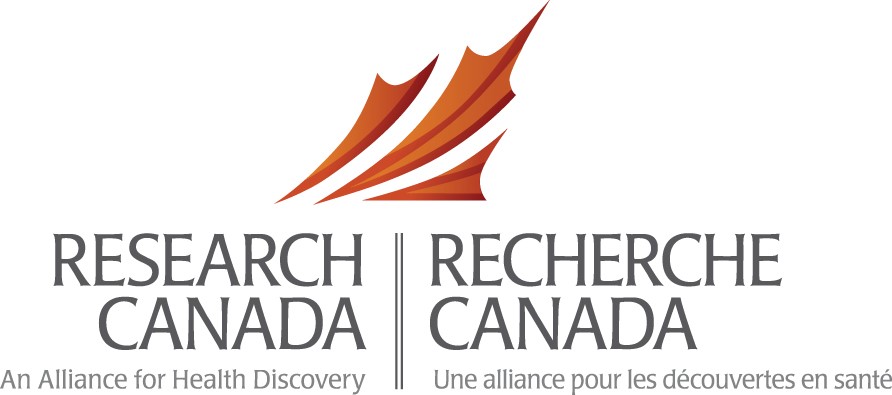 At the Parliamentary Health Research Caucus event called “Cancer Gone: The Research and Innovation that Thinks it Can,” Rama presented the Princess Margaret initiative called ‘molecular cancer prevention (MCP)’ that she started alongside Dr. Hal Berman and Dr. Stephanie Lheureux. This event explores the advances in cancer research and introduces Parliamentarians to Canada’s best and brightest researchers and research teams working in the field.
At the Parliamentary Health Research Caucus event called “Cancer Gone: The Research and Innovation that Thinks it Can,” Rama presented the Princess Margaret initiative called ‘molecular cancer prevention (MCP)’ that she started alongside Dr. Hal Berman and Dr. Stephanie Lheureux. This event explores the advances in cancer research and introduces Parliamentarians to Canada’s best and brightest researchers and research teams working in the field.
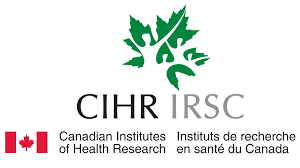
 Congrats Foram on being awarded CGS-M this year! The CGS-M program provides financial support to high-calibre scholars who are engaged in eligible master’s or, in some cases, doctoral programs in Canada.
Congrats Foram on being awarded CGS-M this year! The CGS-M program provides financial support to high-calibre scholars who are engaged in eligible master’s or, in some cases, doctoral programs in Canada.
March 2021
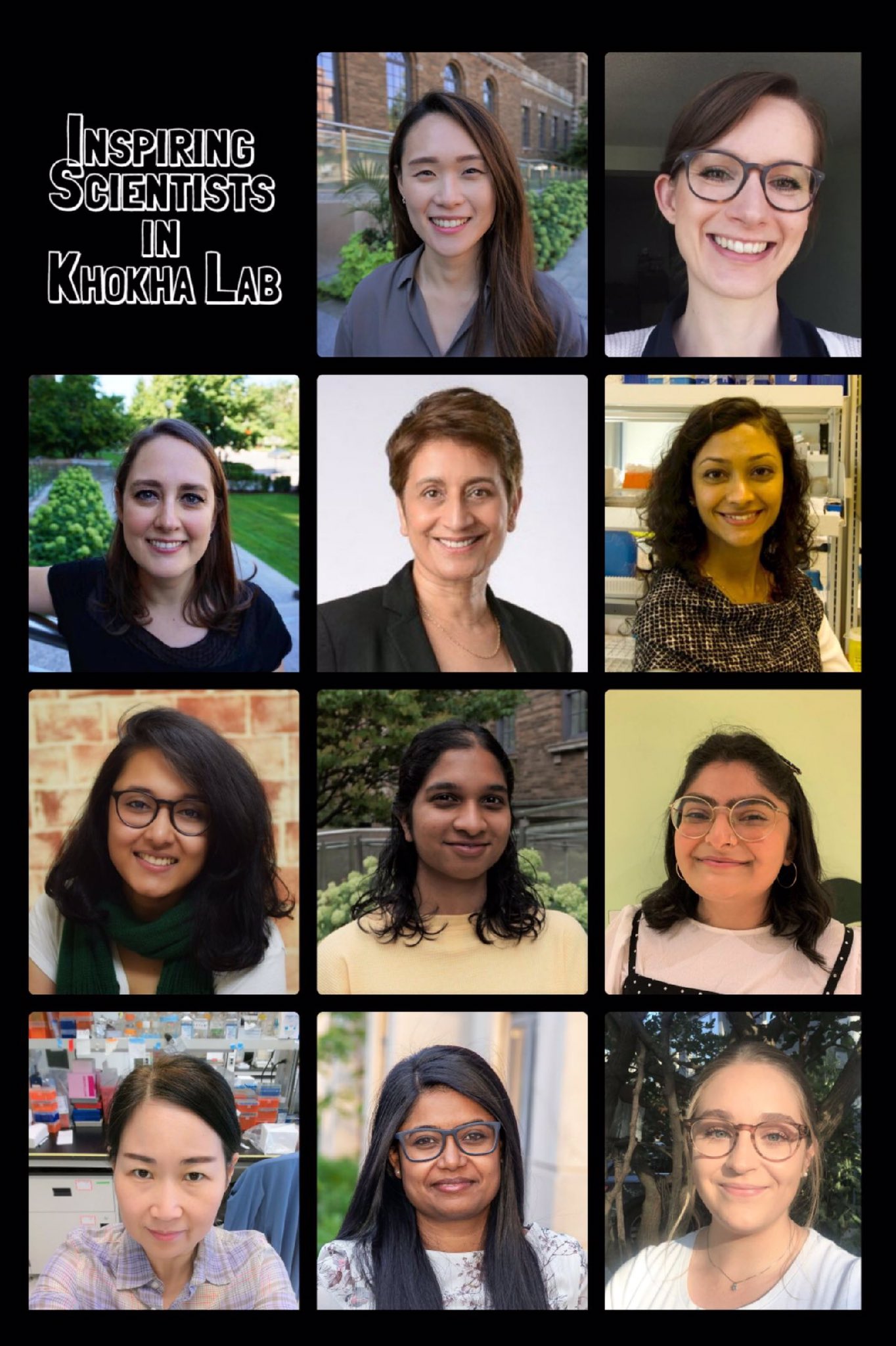 Happy International Women's Day! Celebrating women in science.
Happy International Women's Day! Celebrating women in science.
February 2021
 Barbara's preprint is now on bioRxiv.
Barbara's preprint is now on bioRxiv.
Read it here: Spatially confined sub-tumor microenvironments orchestrate pancreatic cancer pathobiology
January 2021

 Welcome Soumili to Khokha Lab and to Medical BioPhysics at UofT. Enjoy your Ph.D journey!
Welcome Soumili to Khokha Lab and to Medical BioPhysics at UofT. Enjoy your Ph.D journey!
Barbara moderated a JLABs Fire Side Chat event on career tips for aspiring cancer researchers! She represents the Ontario Rising Stars in Cancer Research Network as a Delegate.
Watch it on YouTube: https://www.youtube.com/watch?v=8SWre7GLZCc&feature=youtu.be
October 2020
 Barbara presented her work at the Virtual Special Conference on Pancreatic Cancer hosted by AACR.
Barbara presented her work at the Virtual Special Conference on Pancreatic Cancer hosted by AACR.
She discussed stromal phenotypic heterogeneity in PDAC progression.
September 2020
Rama was elected to Royal Society of Canada (RSC) Class of 2020!

We are pleased to have Foram and Bowen join us as graduate students.
June 2020
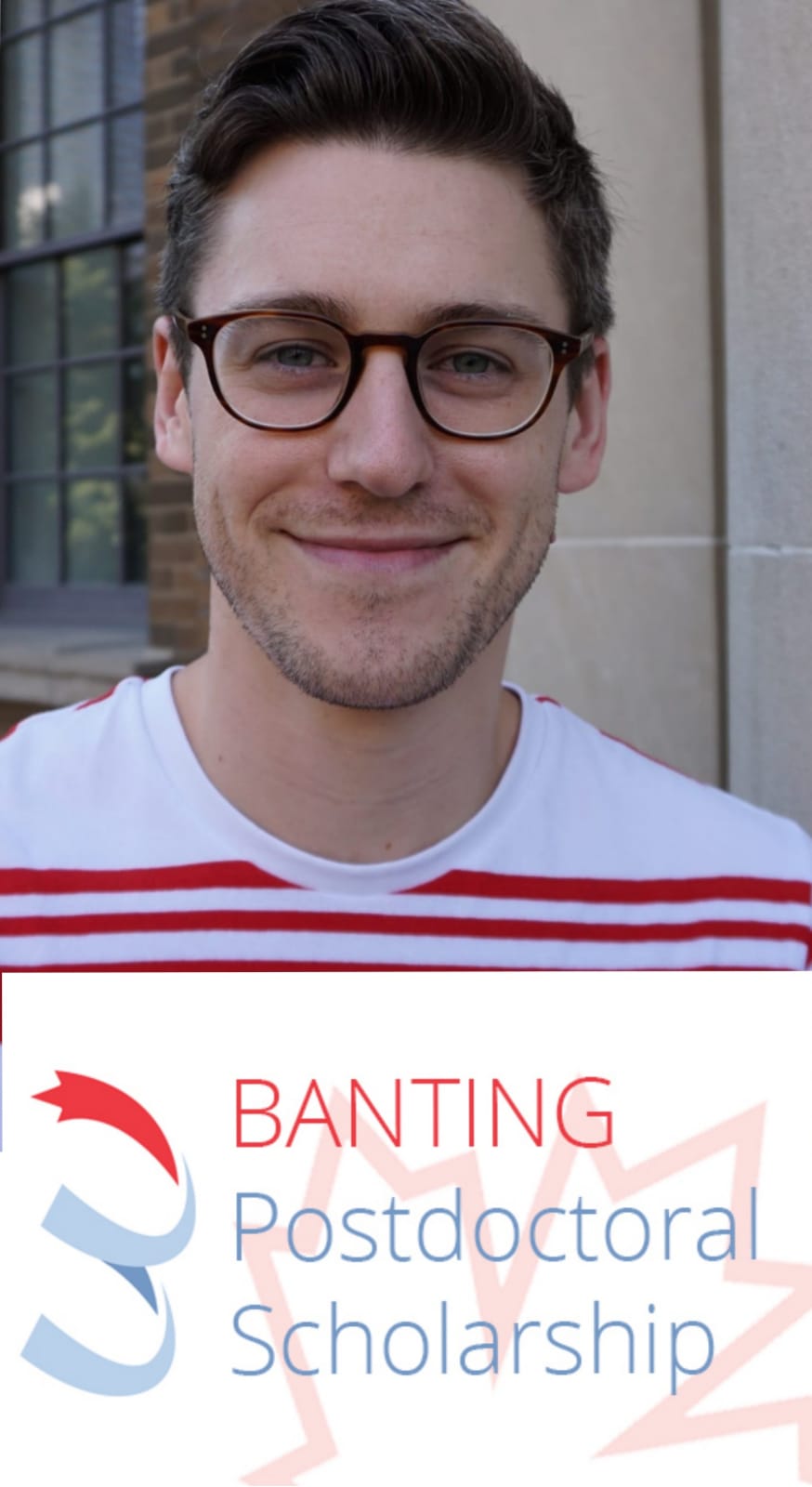 Curtis is a recipient of the Banting Fellowship. Congratulations! The Banting Postdoctoral Fellowships program provides funding to the very best postdoctoral applicants, both nationally and internationally, who will positively contribute to the country's economic, social, and research-based growth.
Curtis is a recipient of the Banting Fellowship. Congratulations! The Banting Postdoctoral Fellowships program provides funding to the very best postdoctoral applicants, both nationally and internationally, who will positively contribute to the country's economic, social, and research-based growth.
March 2020
 Congrats Hyeyeon for successfully defending her PhD via zoom. What an amazing feat!
Congrats Hyeyeon for successfully defending her PhD via zoom. What an amazing feat!
Dec 2019
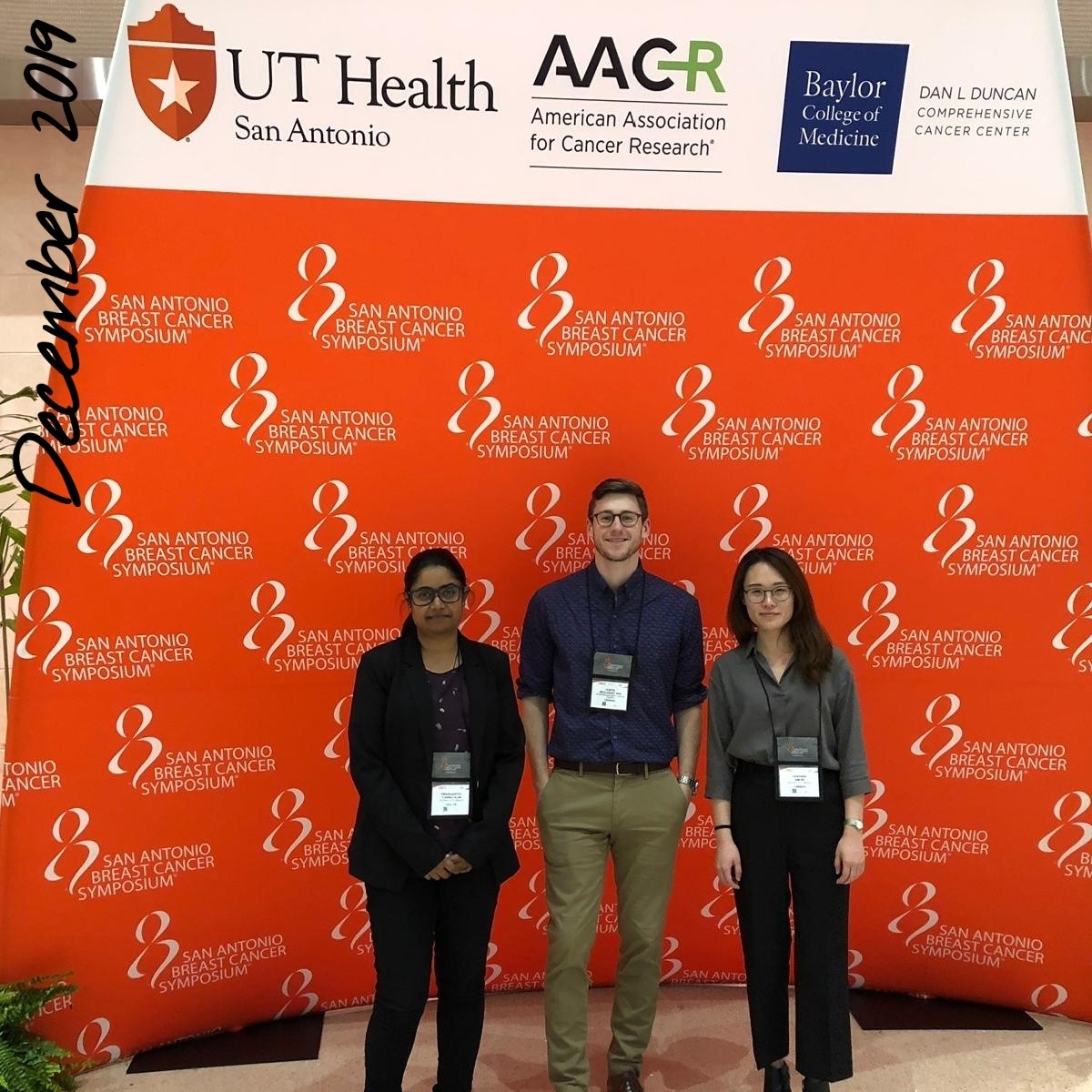 Some of the mamary team attended the Breast Cancer Symposium in San Antonio, Texas! A great conference by American Association for Cancer Research (AACR).
Some of the mamary team attended the Breast Cancer Symposium in San Antonio, Texas! A great conference by American Association for Cancer Research (AACR).
Amazing to hear about all the progress in breast cancer clinical trials and translational research.
Oct 2019
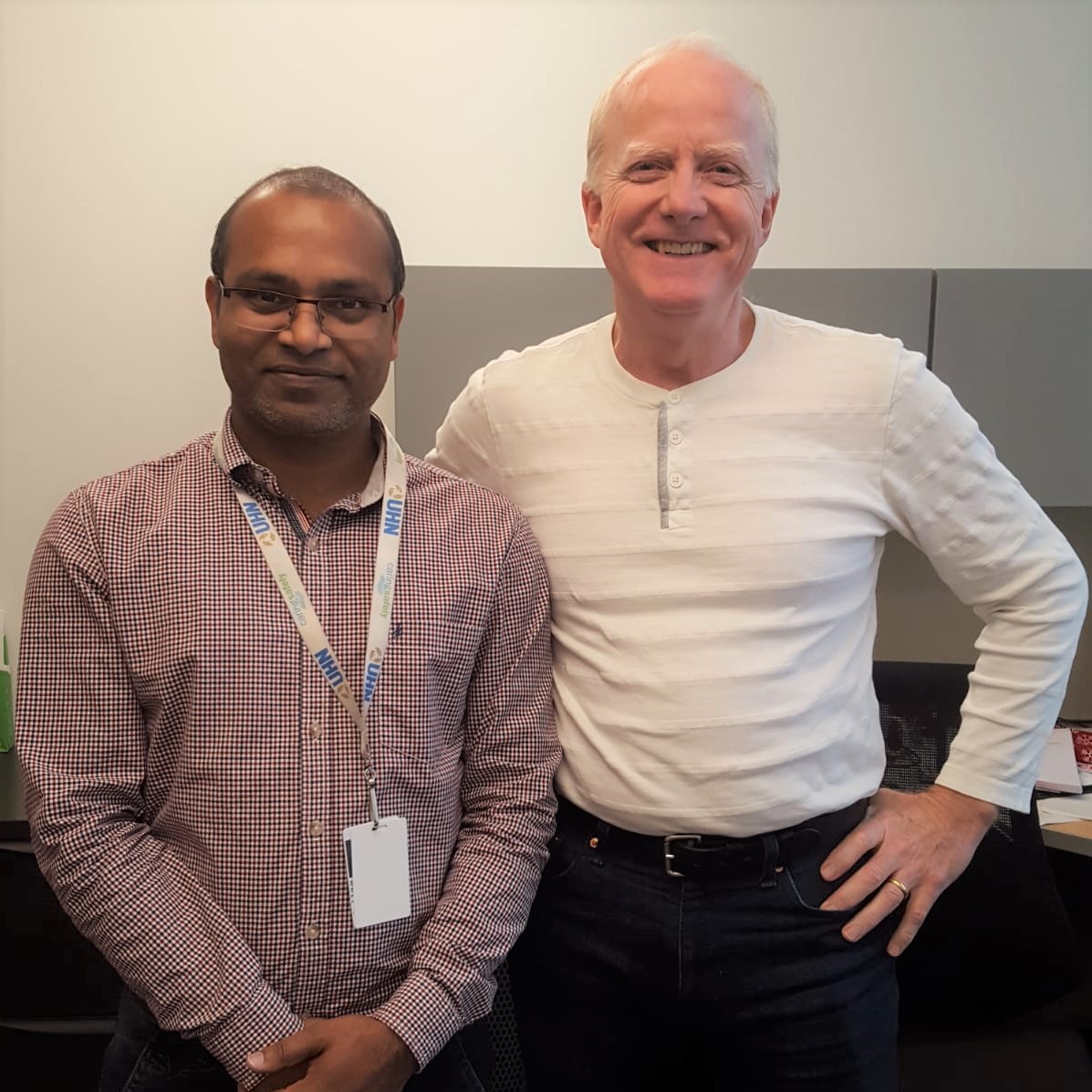 Sanjay and Paul's review is now available in Trends in Immunology:
Sanjay and Paul's review is now available in Trends in Immunology:
Metalloproteases: On the Watch in the Hematopoietic Niche
Aug 2019
 Mathepan just earned his Master's degree. Congrats!
Mathepan just earned his Master's degree. Congrats!
His paper is now on biorxiv:
Mammary epithelial cells have lineage-restricted metabolic identities
 Congratulations Alison and Sanjay!
Congratulations Alison and Sanjay!
Read their paper in JCB here:
Metalloprotease inhibitor TIMP proteins control FGF-2 bioavailability and regulate skeletal growth.
July 2019
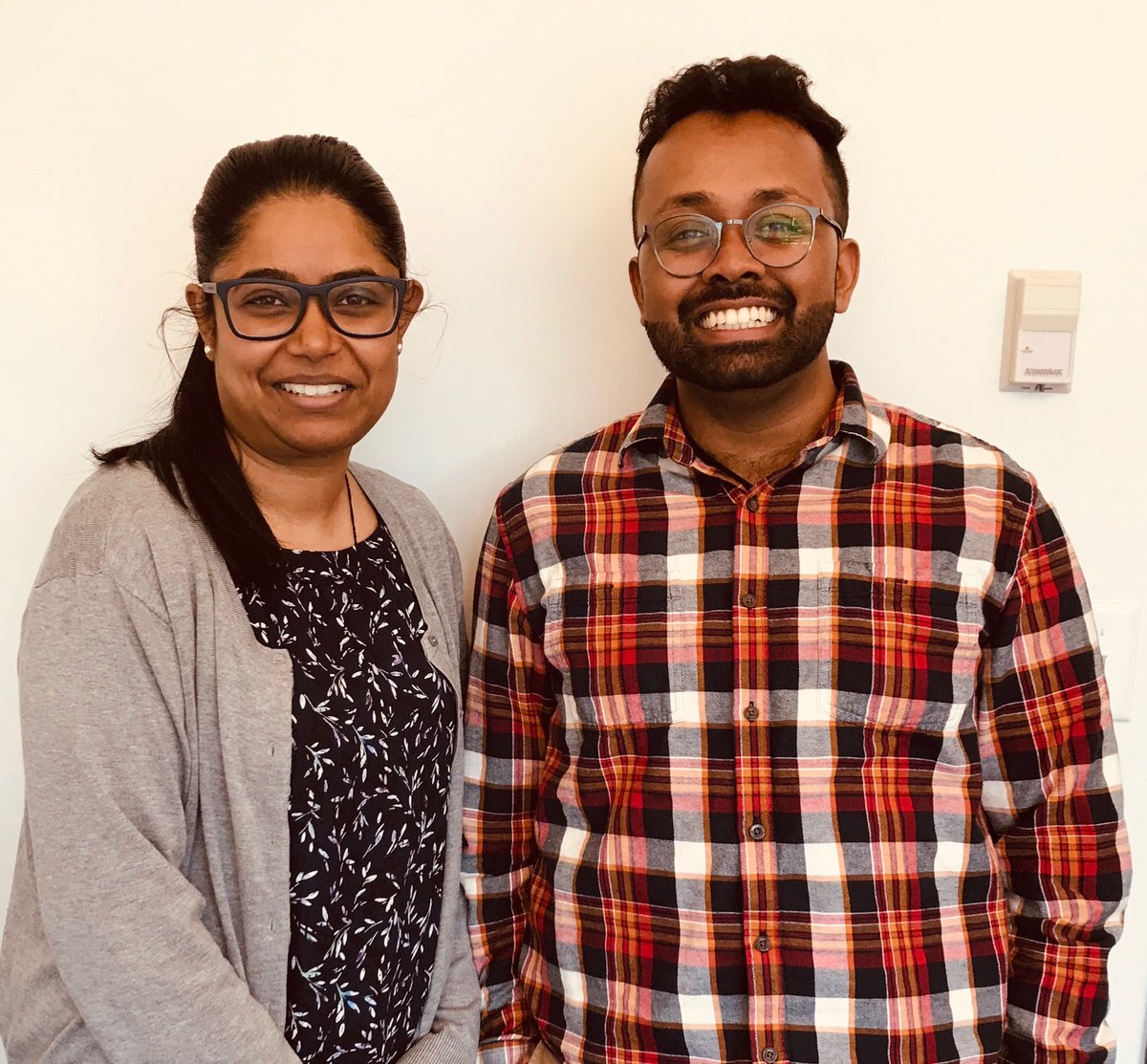 Pirashaanthy's and Mathepan's review is out in EMBO Journal!
Pirashaanthy's and Mathepan's review is out in EMBO Journal!
Read here: Mammary stem cells and progenitors: targeting the roots of breast cancer for prevention.
May 2019
 Read Purna's paper in Nature Communications here:
Read Purna's paper in Nature Communications here:




